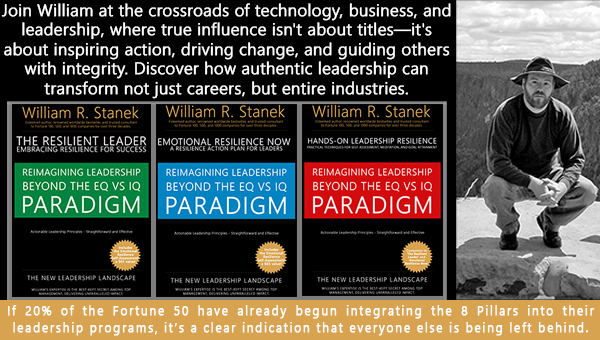
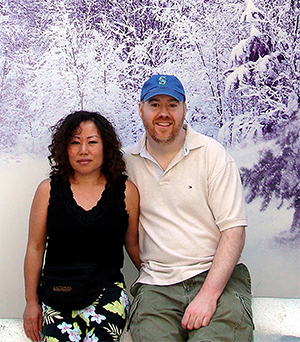
Mindful Living
In our fast-paced world, mindfulness offers a path to connection and inner peace. The "Mindful Living" series by William and Hui Cha Stanek encourages you to slow down, be present, and transform your everyday life. Whether you’re new to mindfulness or deepening your practice, these articles provide practical guidance for living with purpose, presence, and clarity. Embrace each moment with awareness, and connect more deeply with yourself and the world around you.
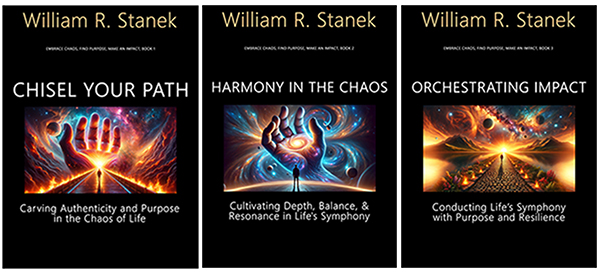
Transform your life with practical wisdom. Discover William Stanek's 'Living Well' series—your guide to a balanced and fulfilling life.
Discover William Stanek's Exclusive Art Collection
Explore and purchase the stunning art featured on this site. Own a piece of William Stanek's unique and captivating artwork today!
(January 28, 2025) Disconnect to Reconnect: How the Staneks Found Clarity Beyond the Screen
We live in a world where being connected has become synonymous with being alive. Notifications, messages, emails—they all keep us plugged into a digital reality that often feels more demanding than the real one. For a long time, Hui Cha and I were no different from anyone else. We were tethered to our devices, constantly in touch but increasingly out of touch with ourselves and each other. But there came a point when we had to ask ourselves: Is this really living?
Our journey to reclaim our lives from the digital world wasn’t sudden or dramatic. It started with a subtle, almost imperceptible awareness that something wasn’t right. We began to feel more disconnected from each other, even when we were in the same room. Our focus was fragmented, our minds constantly racing from one notification to the next. We realized that the very technology meant to bring us closer was pushing us apart—both from each other and from our own sense of inner peace.
It was a sobering realization, and one that led us to take a step back and reevaluate our relationship with technology. What followed was a journey of disconnection—not just from our devices, but from the noise of the digital world—and a reconnection with what truly matters: each other, our mental clarity, and the simple joys of being present.
Recognizing the Need to Disconnect: The Slow Creep of Digital Overload
The first signs that something was off weren’t dramatic. There was no single moment when we realized that technology was taking over our lives. It was more of a slow creep, a gradual realization that our devices were demanding more of our attention than the people and experiences right in front of us.
For me, the wake-up call came one evening after a particularly long day. I was sitting on the couch, scrolling through emails, when I looked up and realized that Hui Cha had been talking to me, and I hadn’t heard a word she said. She wasn’t upset—just resigned, like this had become the new normal. And in that moment, I felt a pang of guilt, followed by a deeper sadness. How had we let it get to this point?
It wasn’t just about missing conversations; it was about missing life. The more we were plugged in, the more we seemed to be missing out on the things that really mattered—like the quiet moments of connection, the joy of a shared meal, or the simple pleasure of watching a sunset without the distraction of a screen.
Hui Cha had her own moment of realization. She had always been someone who cherished the small, quiet joys of life—tending to her garden, enjoying a cup of tea, or simply sitting in reflection. But as our lives became more dominated by technology, she found it harder to focus, harder to be present. Her mind was constantly buzzing with the noise of the digital world, and she began to feel a growing sense of unease.
It became clear that we needed to make a change. We needed to step back, unplug, and reclaim our lives from the constant pull of technology. But we also knew it wouldn’t be easy. In a world where being connected is the norm, disconnecting can feel like an act of rebellion.
The Benefits of Unplugging: Finding Clarity and Connection
The decision to unplug wasn’t just about cutting down on screen time; it was about reclaiming our mental clarity and deepening our connections with each other and ourselves. And what we discovered was that the benefits of disconnecting went far beyond what we had expected.
One of the first things we noticed was a sense of relief. Without the constant barrage of notifications, our minds began to quiet down. We were able to think more clearly, focus more deeply, and be more present in our daily lives. It was as if a weight had been lifted—a weight we hadn’t even realized we were carrying.
Another benefit was the deepening of our connection with each other. Without the distraction of our devices, we found ourselves having more meaningful conversations, sharing more moments of laughter, and simply enjoying each other’s company in a way that we hadn’t in a long time. It was as if we were rediscovering each other, and in the process, rediscovering the joy of being together.
We also found that unplugging allowed us to reconnect with ourselves. For Hui Cha, this meant returning to the simple pleasures that had always brought her peace—like spending time in her garden, reading a good book, or just sitting quietly with a cup of tea. For me, it meant finding time to reflect, to write, and to simply be. Without the constant distraction of technology, we were able to reconnect with the things that truly mattered to us.
A Transformative Weekend: Reconnecting Without Technology
Our journey to disconnect reached a turning point one weekend when we decided to do something radical: we turned off all our devices. No phones, no computers, no television—just us, a cabin in the woods, and the sound of nature all around us.
The first few hours were strange, almost unsettling. We were so used to the constant hum of technology that the silence felt almost oppressive. But as the day went on, something shifted. We began to relax, to let go of the need to check our phones or fill the silence with background noise. We started to talk—really talk—about things that mattered, about our hopes and dreams, about the things we wanted to do and the life we wanted to create together.
That weekend, we rediscovered the simple joys of being present. We went for long walks in the woods, cooked meals together, and sat by the fire, just enjoying each other’s company. It was a weekend of reconnection—not just with each other, but with ourselves. We returned from that weekend feeling more refreshed, more connected, and more at peace than we had in a long time.
The experience was transformative, and it reinforced our belief in the power of disconnecting to reconnect. We realized that by stepping away from our devices, we were able to step back into our lives—to be fully present, fully engaged, and fully alive.
Practical Tips for Implementing Digital Detoxes
After that transformative weekend, we knew we needed to make unplugging a regular part of our lives. But we also knew that in a world where technology is so deeply ingrained in everything we do, it wouldn’t be easy. So, we developed a few strategies to help us maintain our commitment to disconnecting, and we’ve found them to be incredibly effective.
-
Set Boundaries:
- One of the first things we did was establish clear boundaries around our use of technology. This meant setting specific times of the day when we would be completely unplugged—no phones, no computers, no distractions. For us, this often meant the first hour of the morning and the last hour before bed were device-free zones. This simple change had a profound impact on our mental clarity and overall well-being.
-
Create Device-Free Zones:
- We also decided to create certain areas of our home where devices were not allowed. The dining room, for example, became a no-device zone. Meals were a time to connect, to talk, and to enjoy each other’s company without the distraction of screens. By creating these device-free zones, we were able to reclaim spaces in our home as sanctuaries of connection and presence.
-
Practice Mindful Technology Use:
- Another strategy we implemented was to be more mindful of how we used technology. This meant being intentional about when and why we were using our devices. Instead of mindlessly scrolling through social media or checking emails out of habit, we started to ask ourselves, “Is this adding value to my life?” If the answer was no, we put the device down and did something else—something that brought us joy or helped us feel more connected to ourselves and each other.
-
Schedule Regular Digital Detoxes:
- Inspired by our weekend in the woods, we decided to schedule regular digital detoxes—weekends or even just a day where we would completely unplug from all technology. These detoxes became a way to reset, to recharge, and to reconnect with what really mattered. Whether we were spending time in nature, working on a creative project, or simply enjoying each other’s company, these detoxes became an essential part of our lives.
-
Reconnect with Nature:
- We also made a conscious effort to spend more time in nature. There’s something about being surrounded by the natural world that helps you disconnect from the digital one. Whether it was a hike in the mountains, a walk on the beach, or just sitting in the garden, we found that spending time in nature was a powerful way to reconnect with ourselves and each other.
-
Embrace Simplicity:
- Finally, we embraced the idea of simplicity—both in our use of technology and in our lives in general. We started to declutter our digital lives, removing apps and subscriptions that weren’t adding value. We simplified our schedules, making more time for the things that truly mattered. And we found that in simplicity, there was a profound sense of peace.
Conclusion: A Call to Reclaim Your Time and Mental Space
In a world that’s constantly demanding more of our attention, choosing to disconnect is a radical act. It’s a way of reclaiming your time, your mental space, and your life. For Hui Cha and me, this journey of disconnection has been transformative. It has brought us closer to each other, deepened our connection with ourselves, and helped us find clarity in a world full of noise.
We’ve learned that the real magic of life doesn’t happen on a screen. It happens in the quiet moments, in the spaces where we can be fully present with ourselves and the people we love. It happens when we step back from the digital world and step into the real one—the one that’s full of beauty, connection, and peace.
So, I invite you to join us on this journey. Take a step back, unplug, and see what happens when you disconnect to reconnect. Start small, with just a few minutes a day, and see how it feels. Notice the difference it makes in your clarity, your focus, and your relationships. And remember, in a world that’s constantly pulling us in a thousand different directions, choosing to be present is an act of rebellion—and one that’s well worth the effort.
Reclaim your time. Reclaim your mental space. And reconnect with what truly matters. You won’t regret it.
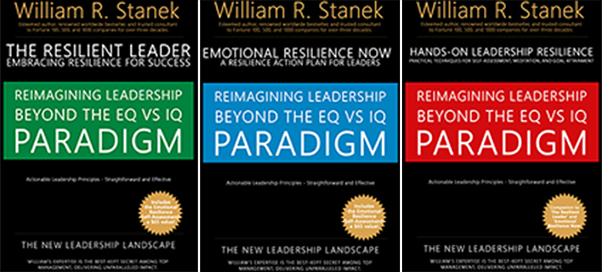
Join William at the crossroads of technology, business, and leadership, where true influence isn't about titles - it's about inspiring action, driving change, and guiding others with integrity. Discover how authentic leadership can transform not just careers, but entire industries.
Bring Inspiration Home
Enhance your space with William Stanek's evocative art. Each piece is crafted to inspire and uplift your everyday life.
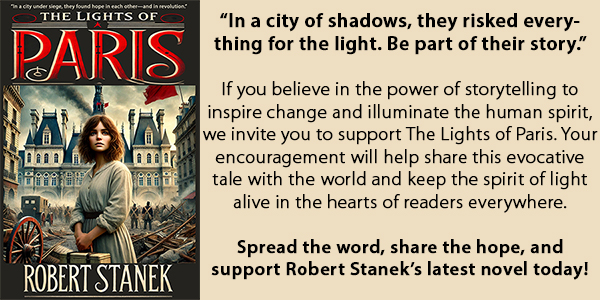
Support The Lights of Paris by Robert Stanek, William Stanek's pen name! Through vivid historical detail and deeply moving character stories, Robert takes readers on an unforgettable journey through one of history’s most transformative times.
